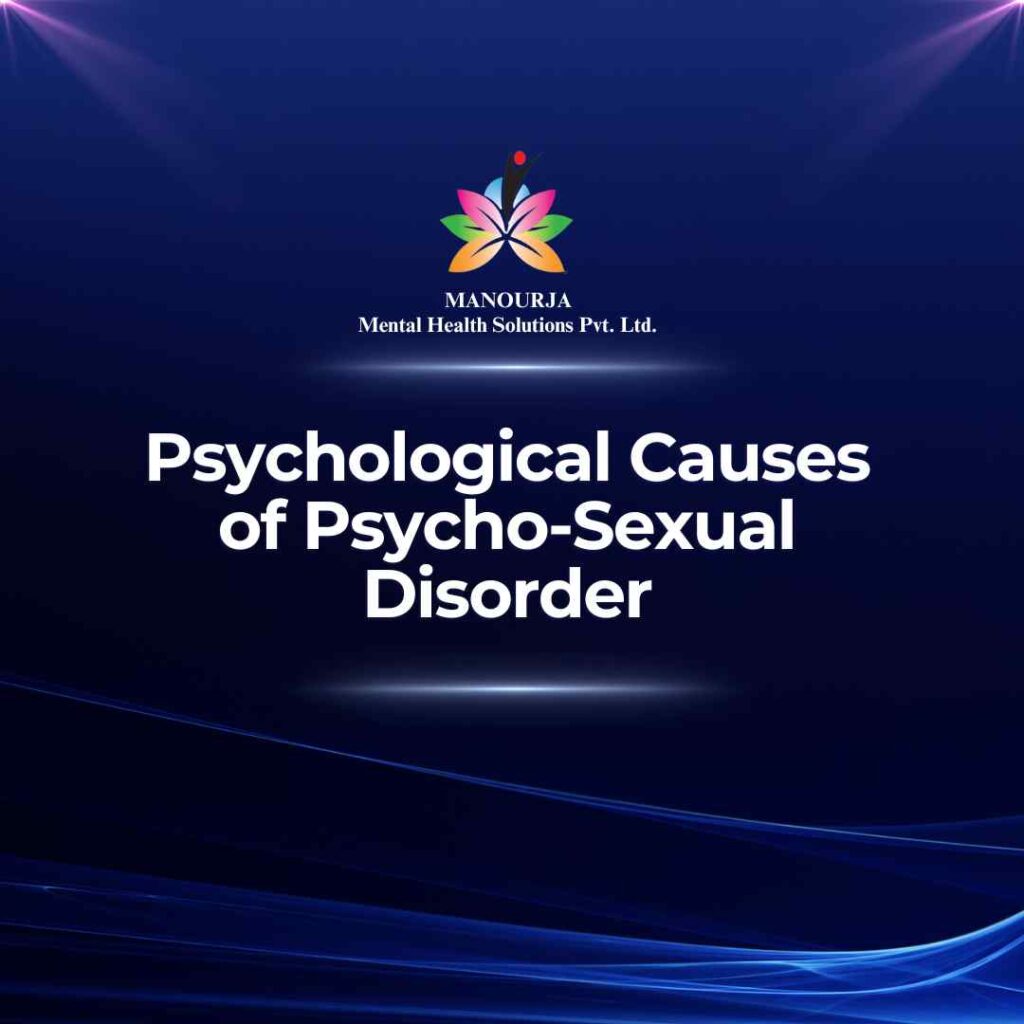Psychological Causes of Psycho-sexual Disorder

Psychosexual disorders often stem from complex interactions between biological, psychological, and social factors. Psychological causes, in particular, play a central role in the development and persistence of these disorders.
Here’s an in-depth look at some of the key psychological causes:
- Performance Anxiety: This is one of the most common psychological factors, where individuals worry excessively about their sexual performance, leading to disruptions in sexual arousal and response.
- Generalized Anxiety: Chronic anxiety can pervade all aspects of a person’s life, including their sexual health, reducing libido and making sexual activity distressing rather than pleasurable.
- Depression can severely dampen sexual desire and energy. It often diminishes one’s libido and can make achieving orgasm more difficult. The emotional malaise and lack of pleasure (anhedonia) characteristic of depression directly impact sexual interest and enjoyment.
Low Self-Esteem and Body Image Issues
- Negative self-perception related to body image can lead to feelings of undesirability or insecurity, inhibiting sexual expression and experience.
- Low self-esteem can make individuals feel unworthy of sexual attention or intimacy, further withdrawing from sexual interactions.
Relationship Problems
- Interpersonal difficulties with a partner, such as unresolved conflicts, poor communication, or lack of emotional connection, can manifest as psychosexual problems. These issues might cause one or both partners to lose sexual interest or respond negatively to sexual advances.
Past Trauma
- Sexual trauma, such as abuse or assault, can have long-lasting effects, often resulting in aversive feelings towards sex or severe anxiety during sexual encounters.
- Childhood trauma and upbringing issues related to sexuality (e.g., strict or punitive attitudes towards sexual behaviors) can lead to deep-seated sexual dysfunctions in adulthood.
Guilt and Cultural Factors
- Feelings of guilt associated with sex, stemming from cultural, religious, or personal beliefs, can severely impact sexual desire and enjoyment.
- Cultural pressures and stereotypes about sexual performance and roles can also cause significant stress and anxiety, leading to psychosexual disorders.
Fear of Intimacy or Commitment
- Fear of emotional intimacy can prevent a person from engaging in deep, meaningful relationships, impacting their sexual relations. This can stem from fear of vulnerability or previous experiences of betrayal or emotional pain.
- Similarly, fear of commitment can lead to avoidance of sustained relationships, which may affect sexual function and interest.
Compulsive Sexual Behaviors
- Although not always directly linked to psychosexual disorders, compulsive or addictive sexual behaviors can be a symptom of underlying psychological issues such as unresolved trauma, anxiety, or depression.
Cognitive Distortions
- Unhealthy patterns of thinking can affect sexual functioning. This includes unrealistic expectations about sex, catastrophic thinking about sexual performance, or black-and-white thinking about one’s sexual abilities.
Understanding and addressing these psychological causes are crucial for the effective treatment of psychosexual disorders. Therapy options often include cognitive-behavioral therapy (CBT), psychodynamic therapy, couples counseling, and sex therapy, all aimed at resolving these underlying psychological issues to restore healthy sexual functioning and relationships.
At MANOURJA, we believe in the transformative power of counseling. Our experienced therapists offer a safe and supportive space where you can explore your thoughts, emotions, and challenges. Through personalized counselling sessions, we’ll work together to develop coping strategies, build resilience, and achieve lasting positive change. Discover the path to a healthier, happier you with MANOURJA counselling services.
MANOURJA Rehabilitation Services
At MANOURJA, we’re dedicated to helping you in rebuild your life, after difficult times. Our rehabilitation services focus on understanding what you need to move forward, whether you’re recovering from addiction, trauma, or any psychological – social challenges. We create personalized plans, that are all about helping you, regain your strength and find hope again. With a caring team by your side, you’ll have the support to make real progress and take steps toward a brighter, healthier future.
